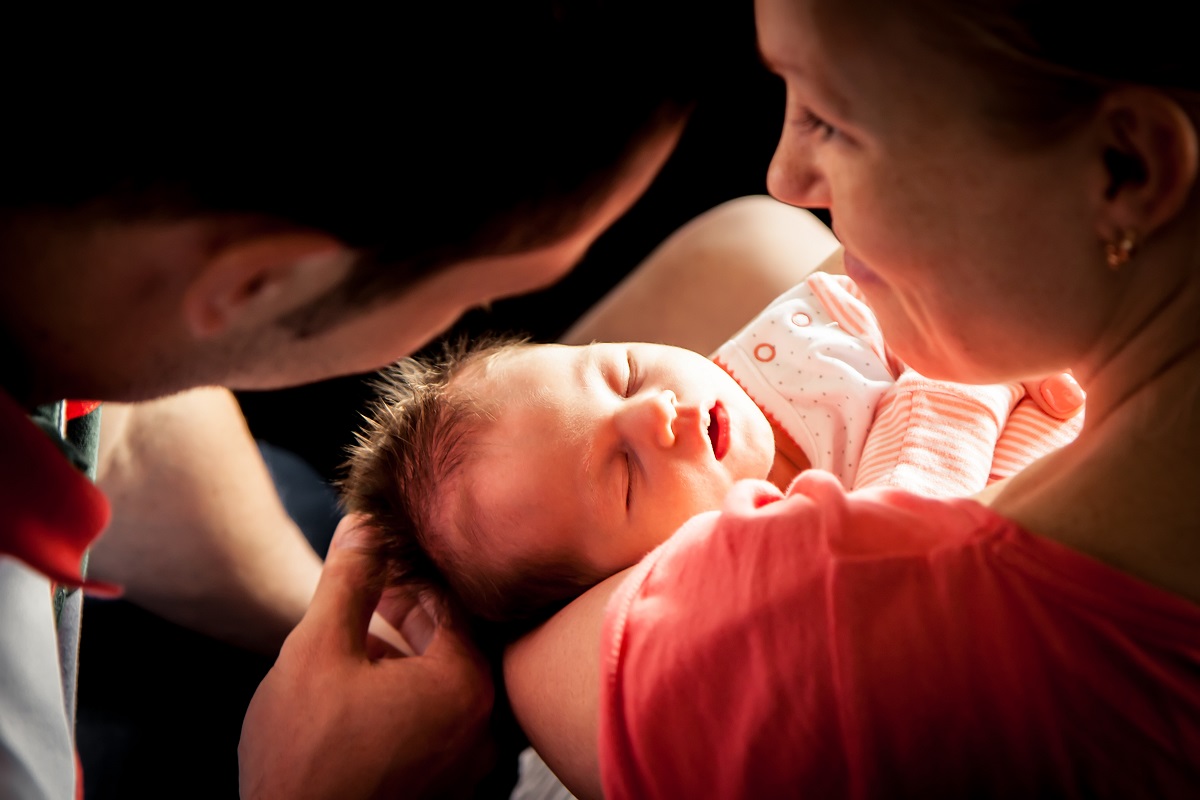The birth of the first child means a great change in life. It’s not only that you need to get used to sleepless nights and full availability. Many other things change and anxiety level rises. I’d like to share a few thoughts that may calm you down.
1. Many People Have Little or no Experience in Childcare
For a lot of people who’ve just had a baby, it is the very first time when they hold such a little person in their arms. The family model keeps changing – more and more of us have fewer siblings or cousins we could take care of. That is why it’s a good idea to attend childbirth classes, participate in parenting courses, use adoula’s help (they are professionals who help you go through the birth and the first months after), or read wise guidebooks.
Although inexperienced, you can still take care of your infant baby, and do it well. Just stay reasonable and sensitive. Imagine how the baby feels – they’ve just left a warm tummy for the world that is colder, louder, drier, and harder. Such a person feels safe in a warm embrace, they also need to suck, have their nappies changed, and clean clothes. And you can give them all of those things.
2. It’s Hard Being a Parent. Be Kind to Each Other
The emotional adaption to the role of mother or father takes time. In the first months after birth you learn how to take care of the baby, you try to follow the child’s development, you’re mentally and physically drained. You might feel bad about that. Feel that you’re not ready to be a father or mother. It’s normal. You wake up at night, and you’d really prefer to sleep on instead of feeding the baby? Every mother feels like that. You haven’t dreamt about your son or daughter yet, or sometimes forget that you have a child? Easy, other parents have moments like that too. It may seem that your friends are better atit, especially when they boast how their child sleeps through the night intheir crib and wakes up happy as a lark. You don’t know if that’s true. Thosestories might have been embellished. Just like the photos on blogs and insocial media. Photographs show a dressed-up mom, or dad taking care of a sweetchild all day long, spotless apartments… While your place – and relations -are in chaos? Remember: life is not a carefully set-up photo. Mom does not needto look like a model, dad probably has a lot of work and stress, and a housewhere a small child lives stays spotless only for the brief moment it takes tosnap a photo.
You need tobe more understanding – for yourselves and each other: father for the baby’s mother,and mother for dad. Talk things over, support each other, joke. It’s adifficult time and it’ll be easier to endure if you’re allies.

3. Infants Cryfor Various Reasons, don’t Worry that it’s Something Bad
You shouldalways react to baby’s crying, because it always means something. They can’tsay: hug me, I’m bored, I can’t sleep, I’m a bit afraid. That’s why they cry.When they see and feel that you’re close, that you’re smiling at them, calmlylook into their eyes, talk, hum, hug – they feel good.
Sometimesan infant keeps crying and a breastfeeding mom worries that they’re hungry.Usually unnecessarily, because if a baby keeps growing, regularly requires anappy change and their development does not worry your doctor, everything isok.
Some childrenneed to be close to parents and their calmness more than others. Nothing iswrong with them, it’s just the way they are. They can benefit from a regularlifestyle and avoiding overstimulation, such as meeting with friends, shoppingetc.
Occasionally,crying is a result of your anxiety. Little children absorb their parents’emotions, detect their tiredness and anxiety. Analyse your emotions, perhapsthat’s the answer?

4. ChildrenDevelop Fast. What’s a Problem Today, Stops being one Tomorrow
When youare with your child all day long (as most mothers are), you tend to focus allyour attention on them. And even small difficulties grow out of proportion. Forexample, if a 3-month-old tenses at feeding and instead of sucking looksaround, and the situation repeats during the next feeding, that mom thinks thatthe baby keeps refusing to eat. She begins to think that something’s wrong.Worried, she asks on the Internet what that’s about and immediately gets dozensof links to disturbing texts. After reading them, she’s convinced that it’s atleast the increased muscular tension that affects her child.
Naturally,parents should keep an eye on their children. But also remember that theydevelop very quickly and their behaviours change as fast. Quick developmentmeans that a child suddenly discovers something and for a few days it’s thebest thing in the world. Returning to our example: a 3 or 4-month-old begins tonotice more details in their environment. During the day, they can’t focus onfeeding, they look around and that leads to tensing and bending (“what’s thatbehind Mom?”). Less effective feeding at day means more nightly nursingsessions. After a while it should pass, because the child will focus on a newexciting discovery. So, I suggest approaching new types of behaviour calmly andwith patience.
5. Selectyour Advisors Carefully, Trust your Intuition
Parents oflittle children are barraged with the so-called good advice: on diet, care,upbringing, health. It seems that everyone but you knows what’s best for yourchild… Avoid that situation. Select 2-3 persons you trust and talk to themwhen you have doubts about childcare. The paediatrician who knows your childcould be one of them, the other someone close, who can understand youremotions, give you strength and make you feel better. Avoid people who damageyour self-esteem. You’re parents, you have parent intuition now. Trust it.

6. Parent’sNeeds are as Important as Child’s Needs
Althoughthe infant is the centre of attention, don’t forget about your needs. Not onlythe fundamentals such as sleep, good food, and rest. Childcare is exhaustingand it’s easy to burn out. Make sure you do something fun, and different thanpram walks and nappies. Don’t hesitate to ask family or friends for help – letthem support you by taking care of the baby. Children need calm and happyparents. Take care of yourselves, even if it’s for their sake.













